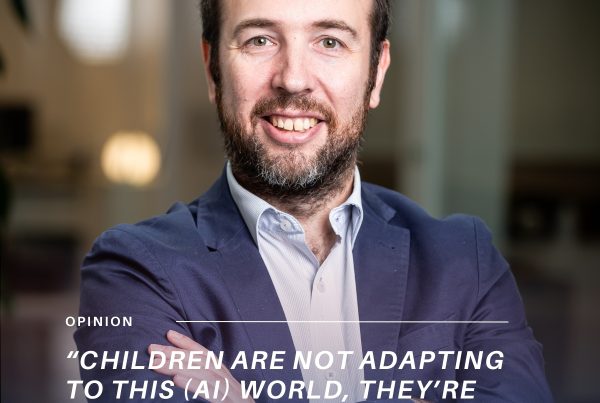In a time of overwhelming transformations and disruption, the challenges regarding People Management are endless and it is within this defiant context where the “magic†of People Management sparks, which, by the way, is an inaccurate science.
We are talking about People! We are not talking about “thingsâ€, we are not talking about numbers! And when people come within the equation, it gets more complex, but also interesting!
Among many others, the most widely debated challenges in recent times are the War for Talent and the resourcefulness that companies must have to retain the best professionals; the management of different generations with distinctive characteristics, experiences, goals and very different views regarding work; the digital transformation; and societal issues intertwined with corporate Social Responsibility are increasingly valued!
A variety of specialty articles, most of them focus on the War for Talent. In fact, there is a lot to say on this subject, especially in certain areas where the demand for professionals is greater than the supply, as it may be the case for the profiles linked to IT.
Recently many colleagues in the area of People Management do recognize that they have already had to select people to join their teams that do not have everything the company and the teams would need, so the option goes by selecting a profile “close†to the desired.
The word “talent†is one of those words that has a certain aura of “je ne sais quoiâ€, in a sense that a talent for the company A may not be a talent for the company B. Regardless of what each company understands as talent, the truth is that it is not that simple today to recruit the most desired profiles.
And what about retaining talents? When companies know who their talents are (concerning the needs of the company; it has a lot to do with cultural fit), it is certain that they will want to retain them.
A lot of ink has also been rolling over this theme of talent retention. Is it just what the company can afford? No, far from it! While there are people driven by the monetary outcome they get, there are many others who value other intangible and/or aspirational outcomes and who can put those outcomes at the top of their list. Among this kind of intangible outcomes, are, for example, the Company’s reputation, a well-defined Purpose, a Good Work Environment and flexible working hours that allows greater conciliation between personal and professional life. In this context, we are talking about a set of factors that together give shape to what we call emotional salary.
In addition to the War for Talent and the Retention of Talent, we have the challenges interlinked with managing the different generations.
Not wanting to make abusive generalizations, the truth is each generation arrives into the job market with its own traits, different interests and motivations.
These differences that must be known by companies, if well managed (and respecting those same differences), can spark fantastic things, such as innovation, creativity, more efficiency; making the best of each person regardless of the generation they integrate.
Regarding this thought, I strongly recommend the movie “The Intern†with Robert de Niro and Anne Hathaway. This is a movie to watch (really watch!) and observe and reflect about the coexistence between different generations, leadership, conciliation between personal and professional life, empathy, generosity, authenticity, among so many other topics.
Another hot topic is Digital Transformation. Will machines replace people and take over? Several studies say no! In an optimistic perspective (and I consider realistic) the machines, the robots, the technology arrived to help. All these new tools that have arrived and will continue to arrive faster and faster, should serve to make us more productive, to stop doing repetitive activities and tasks that add little or no value.
And what about the current functions continue to exist? Will they continue to exist? Some will, others will not! New jobs and functions will emerge that do not yet exist today.
Is it challenging? Very! Especially because people and companies must be ready and available to change (faster and faster), acquire new knowledge (learn, unlearn, learn again), do things differently than usual and use skills that machines do not have. Among others, studies point out skills, such as complex problem solving, critical thinking, creativity, emotional intelligence, people management.
I believe that our education system is not yet prepared for this reality. The more technical knowledge we have acquired in our Schools and Universities are very good, however we are not yet preparing our children and young people for this reality that is already here.
Going back to the challenges in the field of People Management, employees are demanding social responsibility and social action initiatives from companies. They want to be part of socially responsible companies, available to embrace the challenges of today’s society, such as climate change or inequality. And this topic cannot and should not be overlooked!
For all this, it is confirmed! The People Management is facing countless challenges and many more are yet to come! Moreover, these challenges are transforming People Management into an increasingly strategic area for business development and companies’ growth.

Madalena Rei de Sá is not yet 40, however she has been working for over 22 years. At the age of 17 she started working on Radio, one of her passions. She is a confessed addicted to music. Meanwhile, I discovered another interest and vocation – People. She studied 7 years – Degree and Master’s in Human Resources Management. After that, she also participated at several trainings and an International Coaching Certification. And she still is thirsty for knowledge and willing to learn a lot, always, throughout her life!
She has been working in the People Management area for about 15 years. It is complex, it is challenging, and it is passionate!
She started working at COFANOR – Cooperativa dos Farmacêuticos do Norte. After working with other companies, Madalena is Human Resources Director at jp.group.
Each experience and reality reflect unique traits and challenges and that is what makes us grow as individuals and as professionals and she is grateful for that! But she is also grateful to be involved in a project in which she believes and in a group of companies where the motto “people make a difference!†goes further than being a beautiful phrase. In her own words “It is what we believe in!â€




